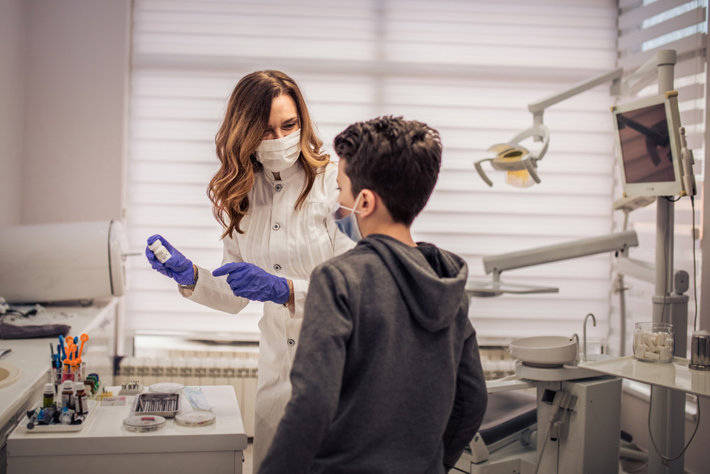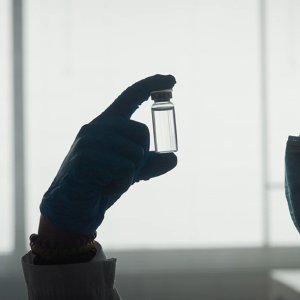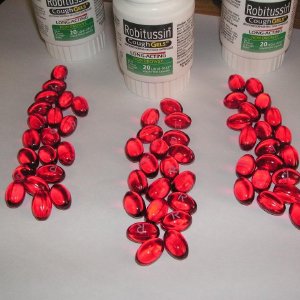Dental Work and Opioid Addiction

Dental visits are a regular part of maintaining good health. According to the American Dental Association, about 58% of Americans visit their dentist at least once per year. From regular checkups to seeking dental assistance for surgical procedures, cosmetic dentistry, or oral pain, trips to the dentist are more than commonplace.
Unfortunately, trips to the dentist are increasingly leading to patients being exposed to opioid drugs. Dental patients, especially young patients, are increasingly receiving prescriptions from their dentists for post-operation opioid painkillers. These drugs are highly addictive drugs that sometimes leave patients with opioid misuse problems, dependencies, withdrawals, addiction, and other adverse side effects.
Taking care of one’s health by seeing the family dentist should not lead to opioid addiction, overdose, and potential death.
A Look at the Data
A group of researchers sought to further understand dental opioid prescribing. They recently published their findings in the American Journal of Preventive Medicine. The researchers gathered a study group of Americans who had received dental procedures and analyzed the post-op prescribing patterns of the patients’ dental practitioners. The researchers examined some 8.5 million dental procedures, separating the procedures into a group that received opioid painkillers post-op, and a group that did not.
The researchers found that, when at least one opioid prescription was given to dental patients, the rate of patients overdosing on opioids was 5.8 per 10,000 procedures, compared to 2.2 patients per 10,000 procedures for the group that did not receive an opioid prescription.

Of 8.5 million dental procedures examined, the researchers were able to determine that patients who did receive an opioid prescription for post-operation pain relief were almost three times as likely to experience an opioid overdose than those dental patients who did not receive such a prescription.
The concern over the growing trend of opioid prescribing within dental practices is exacerbated by the fact that it’s totally unnecessary. Other forms of pain relief are available and effective for the vast majority of post-dental operation pain. And as the research concluded that a patient is put at some risk when opioids are prescribed, dentists should instead consider prescribing non-opioid OTC pain relievers for post-op dental pain.
“Our paper shows that when patients fill dental opioid prescriptions, the risk of opioid overdose increases both for themselves and their family members.”
The harm does not stop there. The researchers also found that when a dentist prescribes a painkiller to a patient, risks for opioid overdose go up for the patient’s family too. Quoting Dr. Kao-Ping Chua, lead study author, “Our paper shows that when patients fill dental opioid prescriptions, the risk of opioid overdose increases both for themselves and their family members. This underscores the importance of avoiding dental opioid prescribing when non-opioids like ibuprofen and acetaminophen are effective options for pain control, as is the case for the majority of dental procedures.” The fact that a patient’s family is also put at risk when a dental patient receives a prescription for opioids further highlights the importance of dentists and oral surgeons significantly reducing such prescribing.
The study findings were so concerning that they caused the researchers and authors, many of whom are dentists, to reflect on the sense in prescribing opioids to patients. Quoting Dr. Romesh Nalliah, a senior author, researcher, and dentist, “To me, this is one of the most powerful truths we’ve unlocked in our ‘big data’ research on dental opioid prescribing. That when a dentist, like me, prescribes an opioid to a patient, I am putting their entire family at risk of overdose. Dentists should consider, if the family concerned was yours, would you take that risk?” All dentists should be asking this question. Is it worth the risk?
Dental Opioid Prescribing and America’s Youth
A separate study, this one published in 2019 in the Journal of the American Medical Administration, highlighted the growing prevalence of dental practitioners prescribing opioid painkillers to adolescents, teens, and young adults.
The researchers sought to determine if there was a change in dental prescribing trends over recent years. Quoting their findings, “A recent investigation found that dental opioid prescriptions for 11- to 18-year-old children and adolescents increased from 99.7 per 1000 dental patients in 2010 to 165.9 per 1000 dental patients in 2015, with nearly one-quarter of the first opioid prescriptions in this age group coming from dental clinicians.” Though incidences of post-operation pain among young patients did not increase during that period, dental practitioners increased their opioid prescribing trends to young people by almost 200%.
Since young people are at high risk for misusing mind-altering substances when exposed to them (even if just exposed to them once), dentists should be far more cautious when prescribing painkillers to youths for post-operation relief. As in the scenarios mentioned earlier, non-opioid OTC pain relief options have been proven to be more than sufficient in easing dental-related pain for youths and adults alike.
Young people should not be exposed to opioid painkillers, especially not when safer, non-opioid alternatives are readily available.
The Danger in Prescribing Highly Addictive Opioid Painkillers to Dental Patients

There is a real danger and risk in prescribing opioid painkillers to dental patients. That patient’s opioid prescription might be their first exposure to the powerful pain meds. It may be their first experience with a highly addictive medication.
The practice of dentists prescribing opioid painkillers to patients opens the door to addiction risk and a risk for overdose. The issue is further exacerbated by the fact that such risk is entirely unnecessary, as safer, non-opioid OTC pain relievers can usually provide sufficient pain relief from most dental procedures.
Addiction Treatment – What to Do if a Dental Patient Becomes Hooked on Their Meds
As opioid prescribing presents a risk for addiction, dental practitioners, patients, and families must know what to do if a patient becomes hooked on opioid painkillers.
Opioid addiction is a life-threatening crisis of the body and mind. Tens of thousands of Americans die from opioid overdoses each year, making it one of the leading causes of preventable death. A dependency on even seemingly safe and medically accepted pharmaceutical opioids should be seen as a serious health risk.
Those who are hooked on opioids must seek professional help from a residential drug and alcohol addiction treatment center. If you or someone you care about started taking opioid painkillers because your dentist told you to, but now you can’t stop taking them, please seek help from a qualified drug treatment center as soon as possible.
Sources:
- https://www.ada.org/en/publications/ada-news/2018-archive/march/survey-more-americans-want-to-visit-the-dentist#
- https://www.ajpmonline.org/article/S0749-3797(21)00168-9/fulltext
- https://news.umich.edu/treating-dental-pain-with-opioids-linked-to-higher-risk-of-overdose-in-patients-family-members/
- https://jamanetwork.com/journals/jamainternalmedicine/fullarticle/2717503#


